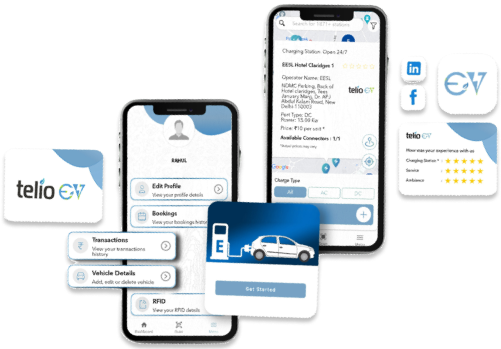Enhancing Electric Vehicle Charging with Advanced Management Software

The quick adoption of electric vehicles (EVs) has required the advancement of effective and easy to use charging solutions. Central to this development are Electric Vehicle Charging Management Software (EV CMS) and EV Charging Apps, which enhance the charging procedure for both operators and users.
Comprehending EV Charging Management Software
EV Charging Management Software works as a thorough platform that makes it possible for Charge Point Operators (CPOs) and other stakeholders to monitor, manage, and optimize EV charging stations. Key functionalities consist of real-time tracking of charging stations, user authentication, payment processing, and energy management. By incorporating these features, the software guarantees efficient operation and enhances the user experience.
Key Features of EV Charging Management Software
1. Real-Time Monitoring and Control: Operators can manage the status of charging stations, track energy intake, and address problems immediately.
2. User Authentication and Access Control: The software manages user access, guaranteeing that only authorized individuals can make use of the charging centers.
3. Payment Processing: It helps with seamless transactions, supporting numerous payment approaches to accommodate diverse user preferences.
4. Energy Management: By optimizing energy circulation, the software minimizes operational costs and supports grid stability.
5. Reporting and Analytics: Comprehensive information analysis help in informed decision-making and tactical preparation for network expansion.
The Role of EV Charging Apps
EV Charging Apps are designed to supply EV owners with practical access to charging infrastructure. These applications use functions such as locating neighboring charging stations, real-time accessibility updates, navigation support, and remote tracking of charging sessions. By improving ease of access and user engagement, these apps play a crucial function in promoting the adoption of electric vehicles.
Integration with Open Charge Point Interface (OCPI)
The Open Charge Point Interface (OCPI) is a standardized procedure that helps with interoperability between various EV charging networks. Combination with OCPI enables smooth roaming, allowing users to access numerous charging networks with a single account. This interoperability enhances user benefit and expands the availability of charging infrastructure.
Advantages of Implementing Advanced Charging Solutions
- Enhanced User Experience: User-friendly interfaces and reliable services increase client satisfaction and commitment.
- Operational Efficiency: Automation and real-time monitoring minimize manual intervention, lowering functional costs.
- Scalability: Advanced software solutions support the growth of charging networks to satisfy growing need.
- Revenue Generation: Flexible prices models and effective payment processing open new profits streams for operators.
Conclusion
The combination of EV Charging Management Software and user-centric EV Charging Apps is critical beforehand the electric vehicle community. These innovations not only enhance operations for service providers but likewise significantly improve the charging experience for users. As the EV market continues to grow, the adoption of such innovative solutions will be instrumental Charging Station Management Software in satisfying the increasing need for efficient and available charging facilities.